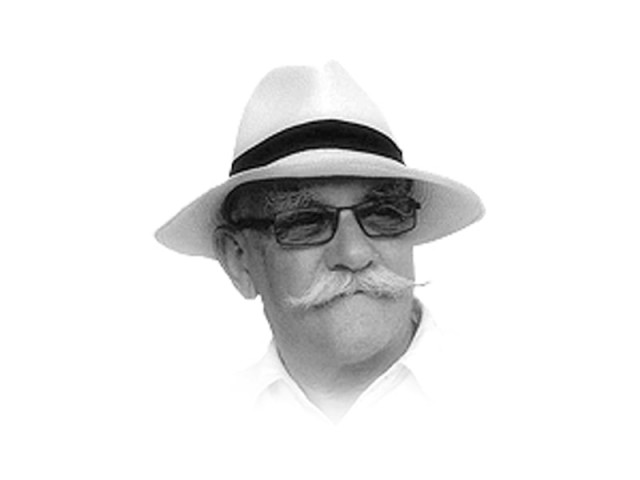Conspiracy theories
In Pakistan, we take nothing at face value, trust nobody and shiver with paranoia.

The writer is editorial consultant at The Express Tribune, news junkie, bibliophile, cat lover and occasional cyclist
Conspiracies are not new and are currently enjoying something of a global vogue. Conspiracy theorists are a fresher phenomenon, their fantasies fed by a voracious internet. Real conspiracies do exist, but most conspiracy theories are the product of fevered minds.
We live in a time of almost universal doubt, the assumption that everything we are told by the government is less than the truth or plain misleading, and behind the arras vested interests are manipulating our perception. Unfortunately, this is sometimes true. The knack lies in deciding which part of the conspiracy theory de jure is the gem of truth and which the dross.
History provides rich conspiracy pickings: the moon landings were somehow contrived by the Freemasons and the Illuminati are behind the new world order, whatever that is. The McCarthy witch hunts of the early 1950s, which sought to expose communists in public life at the height of the Cold War — unsuccessfully — are part of a conspiracy, just like the assorted Jewish conspiracies to take over the world. What is lacking in all of them is the universally accepted and incontrovertible evidence that would bear them out.
Such is the academic interest in conspiracies and their attendant theorists that Cambridge University is to investigate the impact of conspiracy theories on democracy.
One hopes they come in this direction because if they do, they will find a polity disappearing up its own fundament in a welter of real and imagined conspiracies — most of which, when unpacked, are revealed as nothing more than run-of-the-mill political chicanery.
The local brand of conspiracy theory is notably threadbare. There are any number of hidden hands attached to nameless arms, enemies of peace, likewise democracy, are behind every bomb blast and the teachers of Punjab are currently up in arms about a conspiracy by the British to transform the education sector into a British company.
Conspiracy theories are going to thrive wherever there is a breakdown of trust between the state and its people. To a greater or lesser degree, that breakdown is evident in many parts of the world. It is not difficult to imagine the sense of outrage felt by Chancellor Merkel coming from a state where the secret police, the STASI, had informants on every corner and ears on every phone call for over 50 years.
It may even be that the American NSA conspired to keep President Barack Obama out of the loop and went ahead in developing ever more sophisticated data harvesters that were ever more hidden from view — until the likes of Snowden and Assange came along and blew the lid off the whole sordid brew.
The US-German relationship will survive, but trust has been lost like never before and may not be fully regained or restored to anything like the level that existed before.
So, are the conspiracies, real or imagined, undermining democracy in Pakistan? Perhaps, the first thing to remember is that this is not a democracy, we have elective feudalism instead but with a democratic mantle for the sake of modesty. Conspiracy in such a culture is the bread-and-butter of daily life, the very stuff of politics. Conspiracies are propagated willy-nilly to be parlayed into political capital and shore up a shaky status quo. The lines between the true conspiracy, the faux-conspiracy and the theories of conspiracy in Pakistan have merged, homogenised, and we take nothing at face value, trust nobody and shiver with paranoia. Conspiracy undermines democracy? Hardly, there was not much to undermine in the first place.
Published in The Express Tribune, October 31st, 2013.
Like Opinion & Editorial on Facebook, follow @ETOpEd on Twitter to receive all updates on all our daily pieces.















COMMENTS
Comments are moderated and generally will be posted if they are on-topic and not abusive.
For more information, please see our Comments FAQ